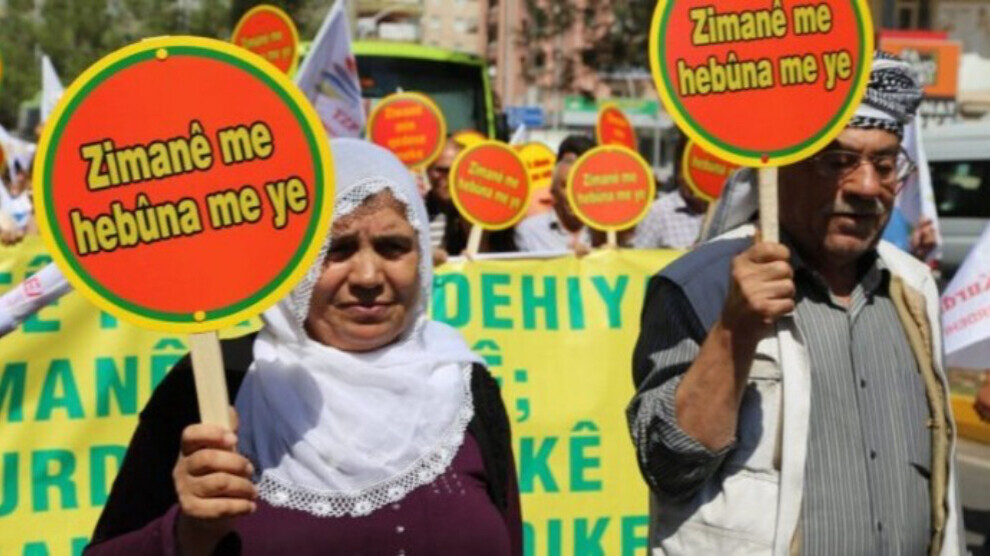Survey: 97.8 percent of participants demand education in mother tongue
The survey result reveals that serious legal, social and family measures are required for the transmission of mother tongues other than Turkish to future generations.
The survey result reveals that serious legal, social and family measures are required for the transmission of mother tongues other than Turkish to future generations.

The Center for Socio-Political Field Research conducted a survey in 22 cities between January 28 and February 11, 2025 to investigate the level of use and demand for mother tongues in Turkey.
Citizens from Diyarbakır, Istanbul, Ankara, Izmir, Erzurum, Adıyaman, Van, Mardin, Urfa, Bingöl, Ağrı, Antalya, Mersin, Şırnak, Bursa, Antep, Batman, Hakkari, Dersim, Malatya, Adana and Siirt participated in the survey. Of the 1,285 participants in the online survey, 97.8 percent want their children to receive education in their mother tongue.
According to the survey results, 1 out of every 5 children under the age of 11 do not speak their mother tongue frequently.
As the age gets younger, the rate of speaking the mother tongue decreases, while the rate of those who do not know it increases. The result reveals that serious legal, social and family measures are required for the transmission of mother tongues other than Turkish to future generations.
Remarkable results
- Participant Profile: 97.5 percent of the participants were Kurdish, 80.4 percent spoke Kurmanji, and 17 percent spoke Kirmançki.
- Language Use at Home: 41.7 percent of the respondents speak Kurmanji and 35.9 percent speak Turkish at home.
- Mother Tongue Proficiency: While 33.9 percent of the respondents stated that they understand their mother tongue very well, 27.2 percent stated that they speak it very well. However, the rates of reading (21.9 percent very proficient) and writing (19.1 percent very proficient) in their mother tongue were lower.
- Reasons for inadequacy: Lack of education in mother tongue, assimilation policies and the fact that mother tongue is not spoken in the family.
While only 17.7 percent of the participants stated that their children receive education in their mother tongue, 97.8 percent wanted their children to receive education in their mother tongue.